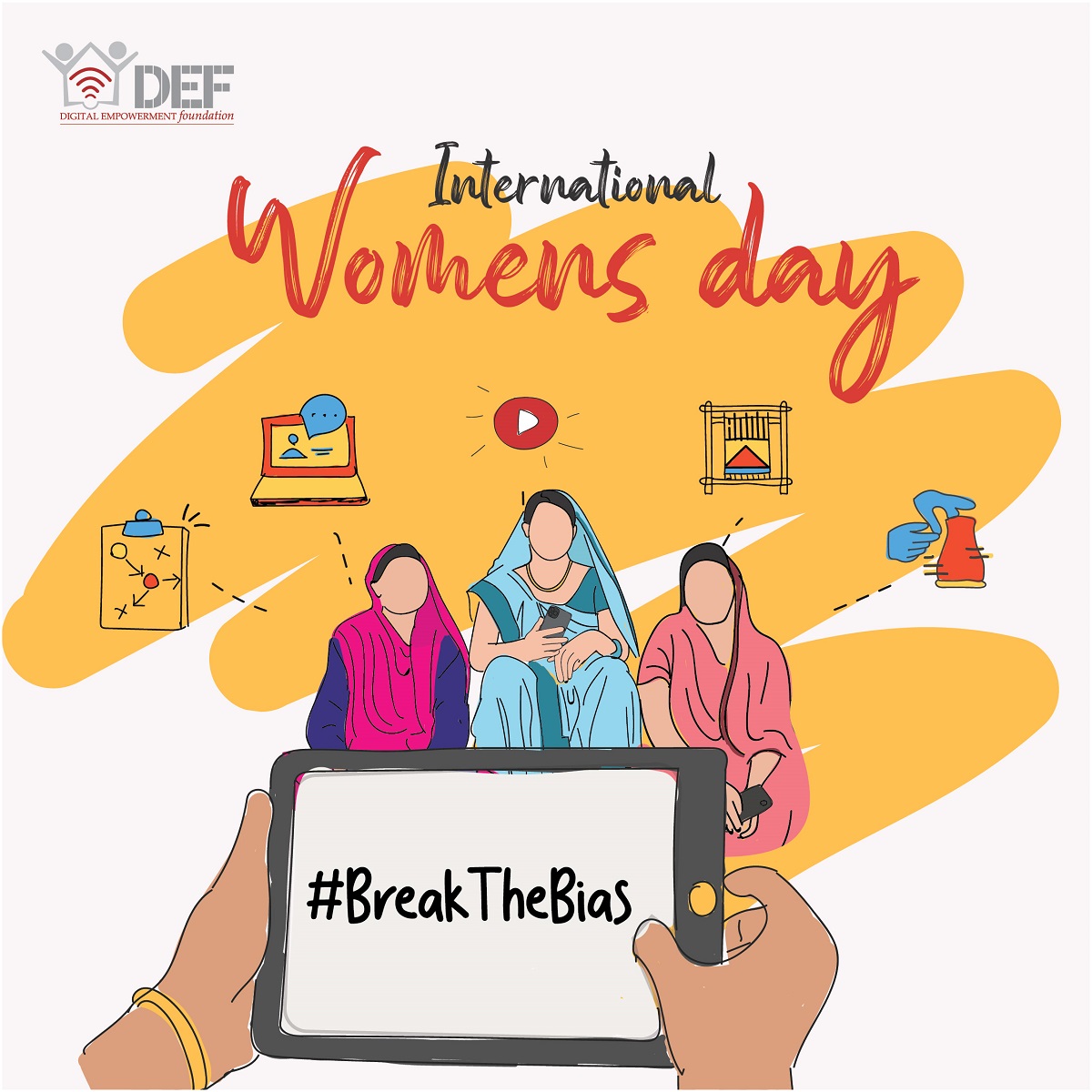
On International Women’s Day, beyond the long conversations on women’s rights, never ending debate on gender equality vs equity, testimonials of change or intellectual talks on feminism, we had the opportunity to interact with the women who are creating changes in the grassroute level where none of the urban lingo around gender bias has any stand. These women who are recognized as SoochnaPreneurs by Digital Empowerment Foundation (DEF) share about their journey which usually begins from a patriarchal bubble that evolves into a path spearheaded to change the conventional mindset to enable growth within their communities.
Although the role of a SoochnaPreneur follows a similar model, the reasons to step into it have been different for these women. While Kamlesh and Pragati took up the responsibility by drawing inspiration from their husbands who were involved with DEF, this job served as the only ray of hope to Jyoti who was fighting depression and struggled to find a purpose to her life. To an educated graduate like Poonam, this was a stepping stone in voicing her aspiration to put her education to good use rather than limiting it to managing the household and to Kalpana it was a joint effort with her family’s support to contribute in some way to her community.
Although these personal choices have helped these women grow individually, everyone agrees in unison that the growing curve only gets steeper when faced with the challenges thrown by the society when they get into the field to play their part. As Shruti, one of the project managers overlooking the SoochnaPreneur program, points out that coming from a privileged background, it is hard for the urban population to get a better grasp of the social and cultural barriers that have to be resolved, especially for rural women, in trying to reach out to help by providing services, they share some of the stories to help us understand better. As the patriarchal environment dominates most of rural India, the initial challenge has always been to convince people that it is part of their job to step out of their homes as many find it hard to accept that a woman can wander about the village. With a strong support from the families, they were able to push through this obstacle, only to face another one in establishing trust among people that they were at their doorstep to help while the common notion because of which they were shooed away many times was that they were being exploited. In this regard, many SoochnaPreneurs are grateful to the DEF team who motivated them to stay resilient and continue to put efforts in having conversations that helped people in understanding. Pragati reminds us that, “You cannot blame them for the way they react. Although they are resistant owing to their preconceptions, all that is required to change it is a good explanation that would convince them to change the way they think”. This wisdom of analyzing and solving the problems rather than considering them merely as roadblocks has allowed these women to provide the services that these people are entitled to, winning their trust and building an identity for themselves in the village unlike earlier when they were only recognized as wives or daughters. They gladly express the joy they derive from serving the community who look forward to having conversations now and thank their families in assisting them as their role sometimes demands them to spend all days of the week working at the center.
As Shruti acknowledges the efforts of these women on the field, she further shares that their work inspires the management team to keep the ball rolling. Spending a couple of years trying to work around social issues filled with learnings, all of them seem ever more ready to take up more challenging roles with great confidence. Many realize the fact that while women are great at managing four different pillars: house, work, society and themselves, they need further motivation to reach their full potential when it comes to their profession. Pappu adds her opinion that assigning leadership roles to women with a bit of hand holding has a huge impact on society. This opinion is further strengthened with some testimonials like the initiative taken up by Poonam to set up SHG groups which has helped women to collaborate and enhance their livelihood, Meera committing to vaccinate thousands in her village out of personal interest, Pragati helping create awareness among young girls from the village about further education and job opportunities before they are pulled into the practice of early marriage and many more.
Engaging with the women SoochnaPreneurs, who make up more than 67% of the Soochna Preneurs associated with DEF, we could justify the choice of prioritizing women to take up this role as it has proved to be an efficient way of including other women from the villages into the programs and making sure that they are comfortable to seek help when necessary. Moreover, such a policy has paved the way for many initiatives, led by women, outside the centers that have further improved lifestyles. This interaction with the SoochnaPreneurs is a reminder that the celebrations around women’s ability and contribution to the society doesn’t necessarily have to happen on big forums either picking an empathetic or aggressive tone. It can start with small changes that set off a chain of actions resulting in big and meaningful impact just by harnessing the wisdom that every woman from every corner can proudly cherish about in the most subtlest way.
Malavika S is part of DEF’s communications team as a writer, editor and storyteller.










